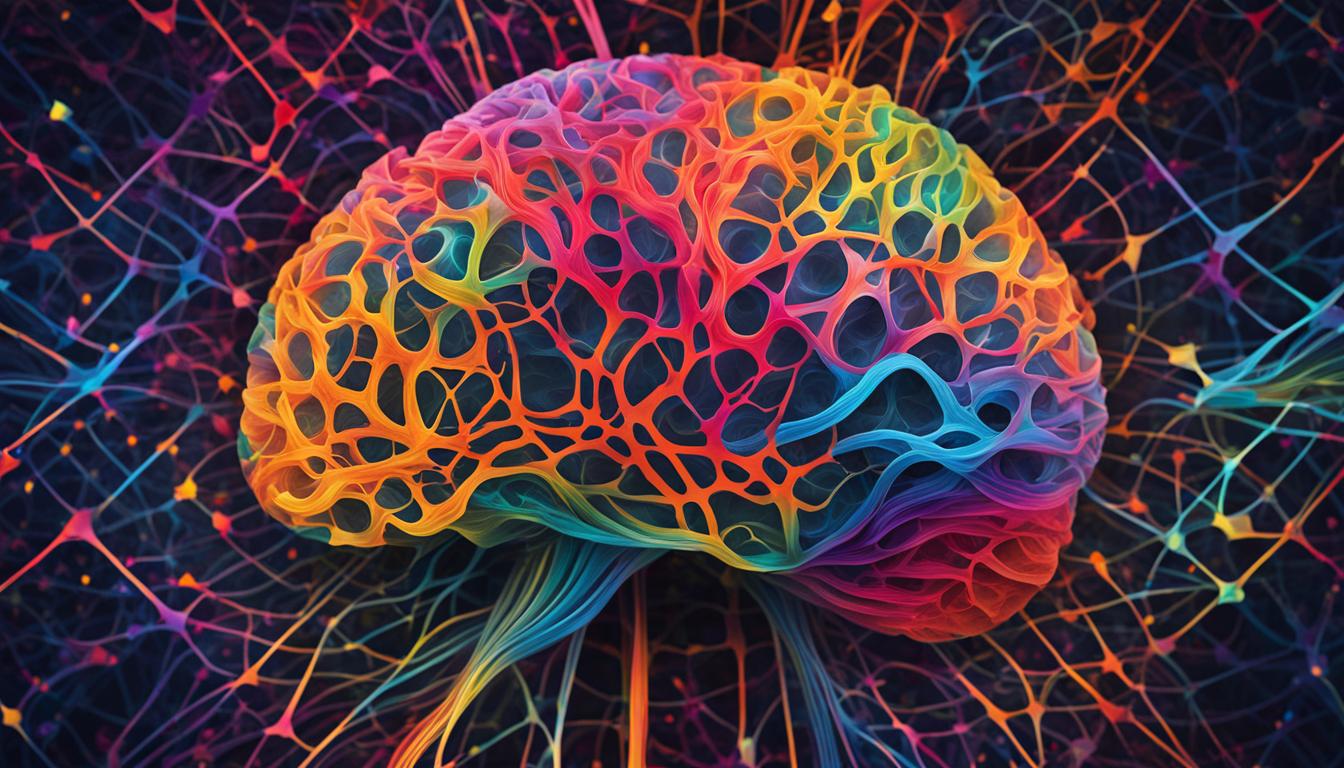Healthy aging is a goal that many individuals strive for as they want to enhance vitality and enjoy longevity. By implementing effective strategies, it is possible to age gracefully and maintain a high level of well-being in the aging process. In this article, we will explore the top healthy aging strategies that can help you stay youthful, maintain your vitality, and promote healthy aging.
These strategies are derived from credible sources such as Dr. Dorothy A. Yen, Dr. Geraldine Cohen, Dr. Liyuan Wei, and Dr. Yousra Asaad, as well as the National Library of Medicine and other reputable sources. By incorporating these strategies into your lifestyle, you can unlock the secrets to a fulfilling and vibrant life journey.
Key Takeaways:
- Implement effective strategies to age gracefully and maintain well-being in the aging process.
- Incorporate healthy aging strategies into your lifestyle to stay youthful and maintain vitality.
- Utilize evidence-based strategies from reputable sources to enhance your overall well-being.
- Embrace a holistic approach to healthy aging and enjoy a fulfilling life journey.
- Promote longevity and well-being by incorporating these strategies into your daily routine.
The Importance of Exercise in Healthy Aging
Regular exercise is a crucial component of healthy aging. It offers a multitude of benefits that can significantly improve your overall well-being and promote longevity. By incorporating exercise into your routine, you can reduce the risk of age-related diseases, enhance your physical and mental health, and improve your quality of life.
Exercise has been proven to reduce the risk of heart disease, lower blood pressure, and control blood sugar levels. It also helps improve strength, balance, and flexibility, which are essential for maintaining mobility and preventing falls.
Engaging in regular exercise can have a positive impact on your mental health as well. It has been shown to alleviate symptoms of depression, boost mood, and enhance cognitive function. Exercise stimulates the release of endorphins, also known as “feel-good” hormones, which contribute to a sense of well-being.
In addition to the physical and mental benefits, exercise also promotes better sleep. Regular physical activity can improve sleep quality and help regulate sleep patterns, leading to more restful and rejuvenating nights.
Experts recommend that older adults aim for about 30 minutes of moderate aerobic exercise on most days, totaling 2.5 hours per week. This can include activities such as brisk walking, cycling, swimming, or participating in fitness classes. However, it’s important to choose exercises that you enjoy and that suit your fitness level.
You don’t have to spend hours in the gym to reap the rewards of exercise. Everyday activities such as taking the stairs instead of the elevator, gardening, or playing with your grandchildren can also contribute to your daily physical activity levels. The key is to find activities that you find enjoyable and incorporate them into your daily routine.
So, whether it’s a refreshing morning walk, a fun dance class, or a peaceful yoga session, make exercise a priority in your life. By doing so, you can reduce the risk of age-related diseases, improve your overall well-being, and promote healthy aging.

“Exercise not only changes your body, it changes your mind, your attitude, and your mood.” – Unknown
The Impact of Diet on Healthy Aging
Your diet plays a significant role in healthy aging. Instead of relying on restrictive diets or yo-yo dieting, it is recommended to practice mindful eating. This involves being conscious of your eating habits and making healthy choices that support your overall health.
The Mediterranean diet is particularly beneficial for promoting healthy aging. It focuses on consuming unprocessed foods, plant-based foods, and healthy sources of fat like fatty fish and olive oil. This dietary approach is linked to better heart health and reduced inflammation, which in turn promotes better brain health.
By adopting a mindful eating approach and incorporating elements of the Mediterranean diet, you can nourish your body and promote healthy aging.

Maintaining Cognitive Health in Aging
As you age, cognitive health becomes a significant concern. The good news is that there are strategies you can implement to help maintain and protect your cognitive function.
Engaging your brain through various activities is crucial. You can learn new skills, pursue hobbies, or simply keep mentally active by solving puzzles or engaging in stimulating conversations. These activities help keep your brain sharp and improve cognitive function.
Believing in your ability to control your memory is also important. Research shows that having a positive mindset about your memory can actually improve it. So have confidence in your memory and trust that you can remember important information.
Regular physical activity is not only beneficial for your physical health but also for your cognitive health. Exercise stimulates the release of chemicals in the brain that support the growth of new neurons and improves overall brain function.
Furthermore, social engagement plays a vital role in maintaining cognitive health. Interacting with others, participating in social activities, and building meaningful relationships can help keep your mind sharp and ward off cognitive decline.
The Power of Mental Energy
It is important to save your mental energy for important tasks. Prioritize what needs your full attention and allocate your mental resources accordingly. By focusing on the tasks that require your cognitive abilities, you can ensure optimal performance and preserve your cognitive health.
Additionally, using tools and strategies to simplify routine matters can help conserve mental energy. For example, using calendars, reminders, and organizing systems can reduce cognitive load and free up mental space for other activities.
Another crucial aspect of maintaining cognitive health is quitting smoking. Smoking damages the heart and blood vessels, significantly increasing the risk of dementia. By quitting smoking, you can protect your brain health and reduce the likelihood of cognitive decline.
Incorporating these strategies into your life can greatly support your cognitive health as you age. By engaging your brain, believing in your memory, staying physically and socially active, preserving mental energy, and quitting smoking, you can enhance your cognitive function and age well.

The Role of Sunlight and Vitamin D in Healthy Aging
Sunlight and vitamin D play a crucial role in promoting healthy aging. Sunlight is essential for the body to produce vitamin D, a vital nutrient that supports physical and mental health. Low levels of vitamin D have been linked to various illnesses, including multiple sclerosis, osteoporosis, and metabolic syndrome.
Exposure to sunlight not only helps the body produce vitamin D but also has additional benefits for physical and mental well-being. Sunlight exposure can improve physical health by supporting bone health, boosting the immune system, and reducing the risk of certain cancers. Additionally, sunlight exposure has been shown to elevate mood and increase endorphin levels in the body, leading to an overall sense of well-being.
If daily sun exposure is not possible or limited due to various factors such as climate or lifestyle, consider discussing vitamin D supplementation with a healthcare professional. Vitamin D supplements can help ensure adequate intake and support overall health and healthy aging.
Remember, incorporating sunlight exposure or vitamin D intake into your routine is a simple yet effective way to support your physical and mental well-being and promote healthy aging.

“The sun is a daily reminder that we too can rise again from the darkness, that we too can shine our own light.” – S. Ajna
The Importance of Social Connections in Healthy Aging
Meaningful social connections are essential for healthy aging. Loneliness has been linked to a higher risk of poor physical and mental health. To combat loneliness, it is important to proactively seek social connections. This can be done through joining social groups, taking classes, rekindling old friendships, or volunteering. By prioritizing and nurturing social connections, you can enhance your overall well-being and promote healthy aging.

Loneliness and Its Impact on Health
A growing body of research suggests that social isolation and loneliness negatively affect both mental and physical health. Loneliness has been associated with an increased risk of conditions such as heart disease, depression, anxiety, cognitive decline, and even premature death. It is crucial to recognize the significant role that social connections play in maintaining our well-being as we age.
The Power of Meaningful Connections
Meaningful social connections provide a sense of belonging, support, and purpose in our lives. They can help reduce stress, boost mood, and improve cognitive function. When we engage in meaningful conversations, share experiences, and feel understood, we strengthen our mental and emotional well-being.
“Connection is why we’re here; it is what gives purpose and meaning to our lives.” – Brené Brown
Actively Seeking Social Connections
Actively seeking social connections is an important step in promoting healthy aging. There are various ways to do this:
- Join social groups or clubs related to your interests
- Take classes or workshops to learn new skills
- Reconnect with old friends or reach out to acquaintances
- Volunteer for organizations aligned with your values
By making an effort to engage with others, you open yourself up to new relationships and experiences that can enrich your life.
The Impact on Mental and Physical Health
Having strong social connections not only improves mental well-being but also has a positive impact on physical health. Research has shown that individuals with strong social support tend to have lower levels of stress, lower blood pressure, and a reduced risk of chronic diseases such as heart disease and obesity.
Additionally, the sense of belonging and purpose derived from social connections can help motivate individuals to engage in positive health behaviors, such as regular exercise and a healthy diet, further contributing to overall physical well-being.
Nurturing Social Connections
Building and maintaining social connections requires effort and nurturing. Here are some tips to help you strengthen your social network:
- Stay in touch with loved ones through calls, video chats, or social media
- Schedule regular social activities with friends or family
- Attend community events or join local clubs
- Be a good listener and show genuine interest in others
Remember, healthy aging is not just about taking care of your physical health but also about nurturing your social well-being.
Strategies for Healthy Aging: A Summary
To summarize, healthy aging strategies encompass various facets of life, including exercise, diet, cognitive health, sunlight exposure, and social connections. By incorporating regular exercise, practicing mindful eating, following the Mediterranean diet, engaging in mental and social activities, getting adequate sunlight or vitamin D, and nurturing meaningful social connections, you can enhance your vitality, promote longevity, and improve overall well-being. These strategies, backed by research and expert advice, provide a holistic approach to healthy aging.
Conclusion
Embracing healthy aging strategies is crucial for individuals who seek to enhance their overall well-being and enjoy a fulfilling life journey. By implementing exercise, adopting a mindful eating approach, following the Mediterranean diet, maintaining cognitive health, ensuring adequate sunlight or vitamin D intake, and nurturing social connections, you can promote healthy aging and unlock the secrets to longevity and well-being.
Healthy aging is within your control. By making positive lifestyle choices, you can thrive as you age. Remember to prioritize regular physical activity and find joy in moving your body. Incorporate mindful eating habits, focusing on nourishing your body with a balanced diet. Consider following the Mediterranean diet for its numerous health benefits.
Protect and enhance your cognitive health by engaging in mentally stimulating activities and staying socially active. Don’t forget the importance of sunlight and vitamin D for your physical and mental well-being. Finally, prioritize meaningful social connections to combat loneliness and promote a sense of belonging and purpose.
By implementing these strategies, you can set yourself on a path towards healthy aging, ensuring longevity and overall well-being. Start making these positive changes today and embrace a fulfilling and vibrant life journey as you age.
FAQ
What are some healthy aging strategies I can implement?
You can implement various healthy aging strategies, including regular exercise, practicing mindful eating, maintaining cognitive health, ensuring adequate sunlight or vitamin D intake, and nurturing social connections.
How does exercise contribute to healthy aging?
Exercise has numerous benefits for healthy aging. It can reduce the risk of heart disease, lower blood pressure, control blood sugar levels, improve strength and balance, fight off depression, help the brain stay sharp, and promote good sleep.
What is mindful eating and how does it support healthy aging?
Mindful eating involves being conscious of your eating habits and making healthy choices that support your overall health. It can be beneficial for healthy aging as it helps nourish your body and promotes better heart health and reduced inflammation.
How can I maintain cognitive health as I age?
To maintain cognitive health, you can engage your brain through learning new skills, pursuing hobbies, and keeping mentally active. Believing that you can control your memory, engaging in regular physical and social activities, saving mental energy for important tasks, and quitting smoking can also contribute to cognitive health.
What role does sunlight and vitamin D play in healthy aging?
Sunlight helps the body produce vitamin D, which is crucial for various aspects of health. Adequate sunlight or vitamin D intake is linked to improved physical health, boosted mood, and reduced risk of illnesses such as multiple sclerosis, osteoporosis, and metabolic syndrome.
How does social connections impact healthy aging?
Meaningful social connections are essential for healthy aging. Combatting loneliness by seeking social connections through joining social groups, taking classes, rekindling old friendships, or volunteering can contribute to better physical and mental health.
What are the key strategies for healthy aging?
The key strategies for healthy aging include regular exercise, practicing mindful eating, following the Mediterranean diet, maintaining cognitive health, ensuring adequate sunlight or vitamin D intake, and nurturing social connections.
Source Links
- https://www.ncbi.nlm.nih.gov/books/NBK585679/
- https://www.webmd.com/healthy-aging/secrets-aging-well
- https://www.sciencedirect.com/science/article/pii/S0148296321009401


